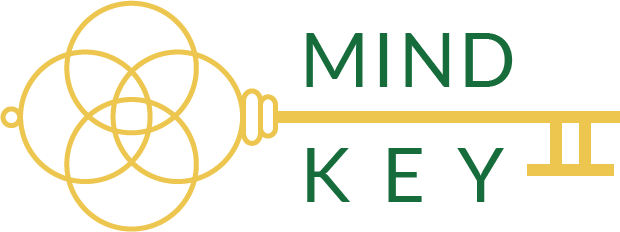
Invest in the future by investing in our children’s financial literacy
by Christopher Hallinan, Fall 2016 graduate of William Paterson University, NJ
Student loan debt. The cold black mass that hangs over college graduates and follows the millennial generation around like an decrepit, stalking butler. The debt is here to stay, and for many young professionals can be a death sentence, a foot in an early grave if they let it. However, teaching financial literacy may be the key to eliminating this debt completely.
A 2017 article published by Student Loan Hero, a resource helping student loan borrowers understand their student loans and make intelligent repayment decisions, found that college loan debt has reached a staggering: $1.3 trillion, or $37,172 per student. A figure that even the best-versed in financial literacy find disheartening to think about, and which begs the question “Where do we go from here?”
Honesty and parenting— Our hope for overcoming student debt
A new hope for student loan debt starts with parents and teachers talking to children about the subject of wealth, and giving them a first-hand account of the importance of money management skills.
 Consider the aftermath of the recession of 2009 a sobering experience to the importance of being financially responsible and literate. Debt beat people over the head like a loan shark violently coming to collect money for a mafioso kingpin. Only, the banks were Tony Soprano, and people’s mortgages were the skulls being bashed in because people took out a loan on a house they could not afford. As a country, if we want to learn from our mistakes to avoid the same fate we had in 2009, we need to be honest with our children. Teaching financial literacy in middle school and high school means teaching the importance of creating a budget and paying off debt on time.
Consider the aftermath of the recession of 2009 a sobering experience to the importance of being financially responsible and literate. Debt beat people over the head like a loan shark violently coming to collect money for a mafioso kingpin. Only, the banks were Tony Soprano, and people’s mortgages were the skulls being bashed in because people took out a loan on a house they could not afford. As a country, if we want to learn from our mistakes to avoid the same fate we had in 2009, we need to be honest with our children. Teaching financial literacy in middle school and high school means teaching the importance of creating a budget and paying off debt on time.
Investing in one’s self first is the most important assets a person can have. If parents are to be honest with their children, then they must also be honest with themselves about their own needs. Self-honesty can be considered the ability to learn to budget time, value, health, money and finances, and is the first step in creating responsible individuals.
With the shape the current economic market is in, and with pensions and social security not being available within the near future, everything a person invests time and money into now will be all they have in the future. The advantages of implementing personal finance into school curriculums, and talking openly about debt takes the stigma off of what being rich or poor really means. Teach children that it is okay to go into debt for major decisions such as going away to college or purchasing a house; but also teach them that it is not okay to accrue substantial interest on a loan because they only made the minimum payment.
Teaching financial literacy —in schools and beyond
If a junior or senior in high school is made well aware of the costs to attend an accredited 4-year college, and the debt they will amass and have to pay off, they will be able to make positive choices that will impact their future careers. A student’s decision to attend a community college, trade school or work to save money and enter college at a later stage in life will not be as daunting of a decision as it has been for the last decade.
A survey of economic and Personal Finance Education in Our Nation’s Schools found that although more states are beginning to integrate personal finance in their K-12 standards, as of 2016 only 20 states required high school students to take a course in economics, and only 17 states require high school students to take a course in personal finance.
Personal finance and debt has been something every adult has had to deal with on a daily basis, and preparing children at a young age for financial responsibility will aid in restoring a sense of accomplishment to reaching their financial goals. If every child is required to pass at least two semesters of personal finance in high school, regardless of deciding to attend college after graduation, the benefit of knowing that saving money now will aid in reaching financial security is crucial to bettering our country’s future.
A 2013 New York Times article, journalist, author and financial literacy advocate, Dan Kadlec states that although an overwhelming majority of adults agree that financial literacy should be taught in schools, schools are slow to pick up on this because of lack of teachers who feel qualified to teach the course, most likely because there is little agreement on what kind of financial literacy instruction actually works.
Although financial education may not be required or readily available in schools, Kadlec states that there are a number of financial institutions and nonprofit and government agencies offering a plethora of free programing, learning materials, and websites devoted to teaching financial literacy. The problem, unfortunately, is that there is perhaps, too much information on the topic, which results in overwhelm and inaction, according to Kadlec.
Our country’s legacy in the 21st century is not going to be the first commercial space rocket to Mars, autonomous vehicles that can drive people to and from work, or affordable solar powered energy. It will be the generation and future generations that rose from the grave of the great recession of 2009 and overcame debt by sticking it to the man (big banks), responsibly creating personal budgets and paying off debt to avoid larger interest charges. Our legacy starts with teaching children about finances and budgeting. Our legacy starts with you.



 Young people are given more choices and more financial freedom when they are educated on financial literacy, and when they are educated on how much debt they might face. Photo by Amanda Hollenbeck
Young people are given more choices and more financial freedom when they are educated on financial literacy, and when they are educated on how much debt they might face. Photo by Amanda Hollenbeck  Young people are given more choices and more financial freedom when they are educated on financial literacy, and when they are educated on how much debt they might face. Photo by Amanda Hollenbeck
Young people are given more choices and more financial freedom when they are educated on financial literacy, and when they are educated on how much debt they might face. Photo by Amanda Hollenbeck